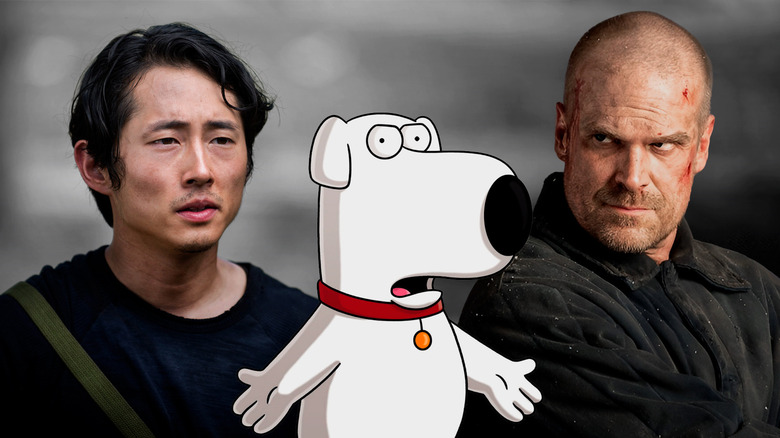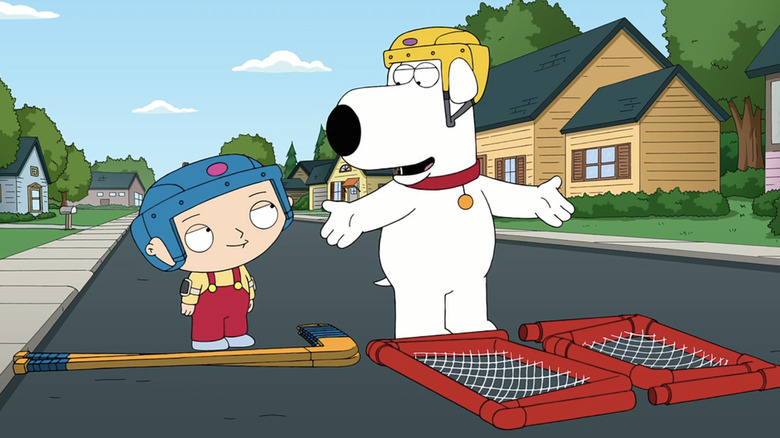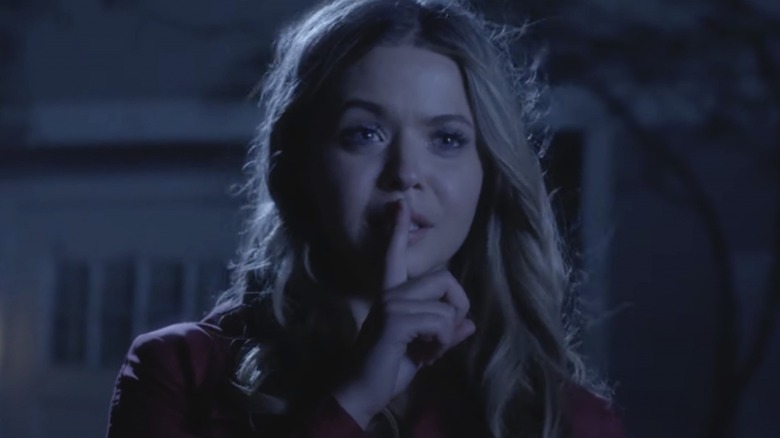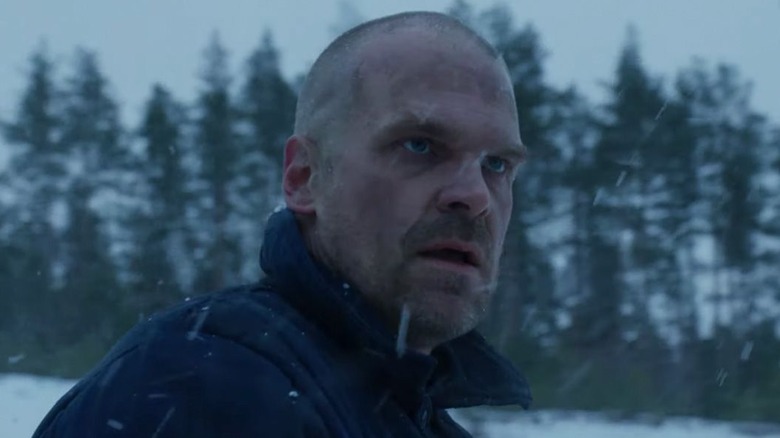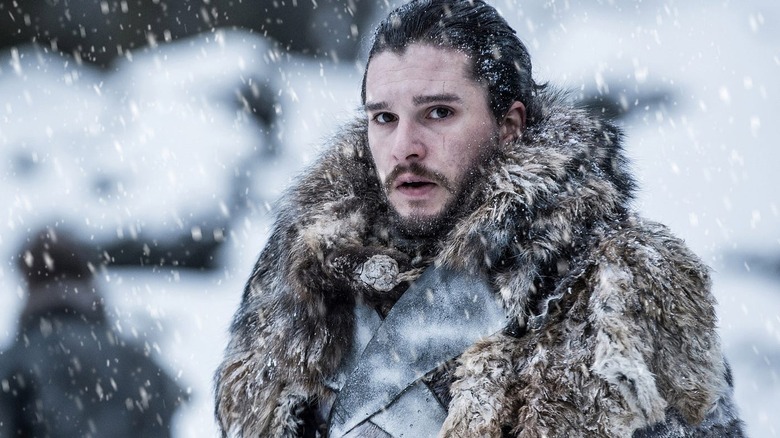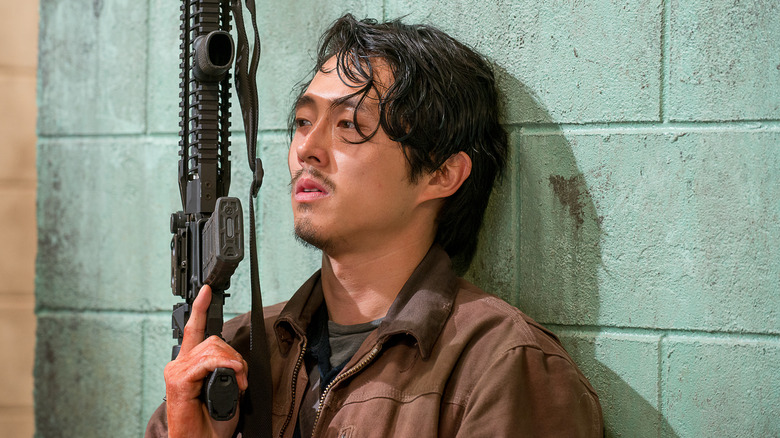5 Huge Character Deaths TV Shows Reversed (And Why)
Death, typically, is supposed to have some sense of finality to it, right?
One of the most devastating parts of a TV show is when a beloved character dies. The beauty of television or serialized content is that you can become attached to characters over several years and seasons, which makes their passing all the more painful and personal. Over the history of television, viewers have been treated to some truly devastating deaths. And, usually, death is permanent, with shows taking time to digest the passing of characters over several episodes.
HBO's "Succession" did a brilliant job of centering an entire season around the ramifications of a key individual's death, revealing just how powerful of a storytelling tool someone's passing can be. Other times, death can help raise the stakes, being utilized almost as a strategic gimmick to constantly make us fearful for a character's safety. "Game of Thrones," for example, expertly highlights how death can be used to instill shock. Several of the show's most prominent and interesting characters don't make it to the end ... which makes us worry for those who manage to survive all the more.
Most self-respecting shows treat a character's death with a sense of permanence and respect. But then there are TV shows that have no respect for the dead, reversing them for various reasons, whether it be for the sake of shock value or because of fan outcry. Here are five chaotic times characters were brought back from the dead.
Brian Griffin - Family Guy
"Family Guy" has always been episodic, following in the sitcom-like footsteps of animated giants such as "The Simpsons" or "King of the Hill." While themes and framing devices do carry over from season to season, very rarely does the Seth MacFarlane-created series go deep into the world of serialized, consequential storytelling. The show made headlines when it was decided that Brian Griffin (voiced by MacFarlane) would die. The beloved family dog was killed off in Season 12, Episode 6, titled "Life of Brian" after being hit by a car. In the episode, the family grieves, before deciding to move on by adopting Vinny (Tony Sirico).
Brian's death proved to be controversial and genuinely ticked off a lot of fans. "Last night on Family Guy, Brian Griffin died. Retweet if you want him back," read an X (formerly known as Twitter) post from 2013, with over 72,000 reposts. There was even a Change.org petition with over 120,000 supporters to bring the beloved dog back. Why did "Family Guy" decide to kill off one of its OGs? "It did what it was designed to do — it reminded people this is still a show where anything that can happen despite the fact it's been on for awhile," McFarlane told those present at the Television Critics Association press tour in 2014 (via Entertainment Weekly).
Ultimately, the character's death was short-lived — Brian was brought back to life two episodes later via the use of a time machine in Season 12, Episode 8, titled "Christmas Guy." Honestly, it sounds like MacFarlane just wanted to troll his audience. "I mean, you didn't really think we'd kill off Brian, did you? Jesus, we'd have to be [expletive] high," MacFarlane tweeted after "Christmas Guy" aired.
Alison - Pretty Little Liars
One of the most beloved teen dramas from the 2010s, "Pretty Little Liars" was a devious thriller filled with twists and turns that left fans in constant shock. The series centers around a group of high schoolers who are reeling from the disappearance of their (manipulative) friend Alison (Sasha Pieterse). The high schoolers soon have their lives turned upside down when they start getting terrorized by the mysterious "A," who knows their deepest, darkest secrets. The girls think "A" is Alison... except her body is found in the pilot.
A huge portion of "Pretty Little Liars" focuses on the teens dealing with the fact that their best friend Alison is dead. Grief is a central part of the show, as are Alison's pre-death exploits and actions, which the girls now have to deal with. Things take a sudden shift in the Season 3 finale when it's revealed that Alison is, surprise, alive! Kind of. Half of Season 4 focuses on the girls trying to figure out if Alison is really alive, which makes for compelling mystery work.
With Season 5, Alison is considered to be completely alive and part of the core roster again. Why did they bring Alison back from the dead? "Pretty Little Liars" is based on Sara Shepard's novels of the same name. While the show and novels take widely different paths by the end, Alison is brought back from the dead in the novels, which is what influenced the show's decision. However, the show tries to redeem Alison, while the books just double down on how cruel she is. Alison even got her own short-lived spin-off, but it would have been far better if she remained a ghost who haunted her best friends.
Hopper - Stranger Things
With Season 3, "Stranger Things" decided to go in a bold new direction with one of its most prominent characters, Jim Hopper (David Harbour). As the third outing wraps up, Hopper decides to sacrifice himself — a move that makes total and complete sense. He's been a surrogate father to Eleven (Millie Bobby Brown) for a while, has developed an intriguing relationship with Joyce Byers (Winona Ryder), and had his cop shtick done to death.
Having Hopper die was a major game-changer for the series, proving that anyone with even an ounce of significance could die in "Stranger Things." And for what it's worth, the Season 3 finale handled his death beautifully. With Harbour's clout as an actor growing and with the character mostly stuck in the motions, it made sense to bid farewell to Hawkins' hero. But then Season 4 brought back Hopper, making him a Russian prisoner who eventually ends back up in America, doing the same 'ol thing again.
This twist cheapened Hopper's sacrifice and undid all the emotional beats that manifested out of his death. For Harbour, however, this was a way to add further depth to the character. While speaking with Total Film Magazine, Harbour acknowledged how Hopper didn't have much depth by the end of Season 3, with Season 4 serving as a way to retool the character. "I think the way he starts season 4... he's like a baby, he's got a shaved head, he's all thin," Harbour said. "We need that guy more than ever because the evil is getting so sophisticated and complex." Harbour added that bringing Hopper back from the dead makes him more vulnerable ... but did it, though?
Jon Snow - Game of Thrones
Yes, "Game of Thrones" is renowned for killing anyone important with a pulse, but it also doesn't shy away from fakeouts. In Season 5, Episode 10, titled "Mother's Mercy," Jon Snow (Kit Harington) meets a devastating fate that looks similar to death. Jon seemingly has his life cut short by his comrades at the Wall after they stab him for forming an alliance with the Wildlings and the King Beyond the Wall. While Snow is definitely in the right for forming that alliance, he's labeled a traitor as he lies dying in the snow. It's one of the most iconic shots from "Game of Thrones," and it was extremely ballsy to end the season there, leaving fans in confusion regarding what's next.
And seeing as this was "Game of Thrones," it seemed genuinely possible that Jon Snow's death could be permanent. This was a genuine game-changer as, for a while, it seemed like Snow was the de facto protagonist in the ensemble alongside Daenerys Targaryen (Emilia Clarke). Ultimately, Snow was resurrected in Season 6, Episode 2, titled "Home" by Melisandre (Carice van Houten). At the time, the move was praised by fans and sort of obvious — "Game of Thrones" couldn't continue its trajectory without Snow.
Snow's death and divorce from the world of the Wall allowed him to eventually foster a connection with Daenerys, a relationship that forges the crux of the show's endgame. While Snow's resurrection, in hindsight, makes sense, it seemed for a brief moment that he was really dead. "I'd like to say sorry for lying to everyone," Harington told EW. "I'm glad that people were upset that he died."
Glenn - The Walking Dead
Perhaps the most infuriating addition to this list is Glenn Rhee's (Steven Yeun) "death" in "The Walking Dead." An absolute fan-favorite, Glenn seemingly dies in Season 6, Episode 3, titled "Thank You." In the episode, Glenn falls into the horde of walkers and appears to be torn apart. It seemed like this was the end of Glenn, especially given how he dies in the comics. It was an uncomfortable and upsetting death that proved to be controversial with fans.
Subsequent episodes ignored Glenn's death, which not only upset fans but also seemed extremely awkward. Why not pay farewell to one of your most important characters? Ignoring Glenn's death was jarring because the show didn't even hint at him coming back. Well, in Season 6, Episode 7, titled "Heads Up," it was revealed that Glenn miraculously survived, turning his death into a weird detour. Yeun had been removed from the credits in between episodes, so having him and his character back felt just like a cheap stunt.
Why did Glenn come back? To die again! After returning for the rest of Season 6, Glenn died in the Season 7 premiere at the hands of Negan (Jeffrey Dean Morgan), just like how he dies in the comics. This time, Glenn's passing was definitive but not as heartfelt, considering that in the season prior, he was robbed of a proper farewell from fans. Ultimately, Glenn should have died in Season 6, allowing his death to feel definitive.
